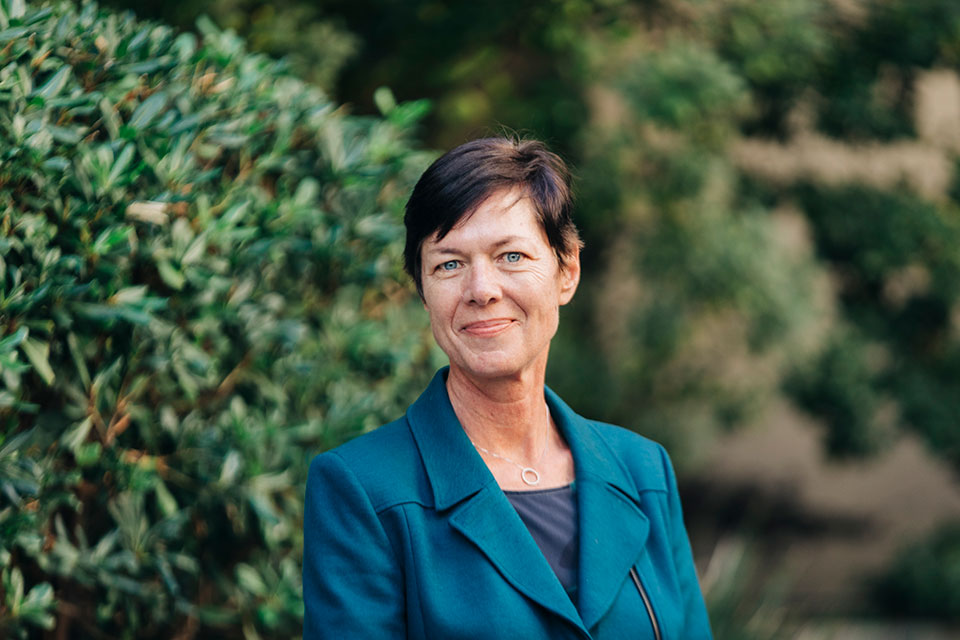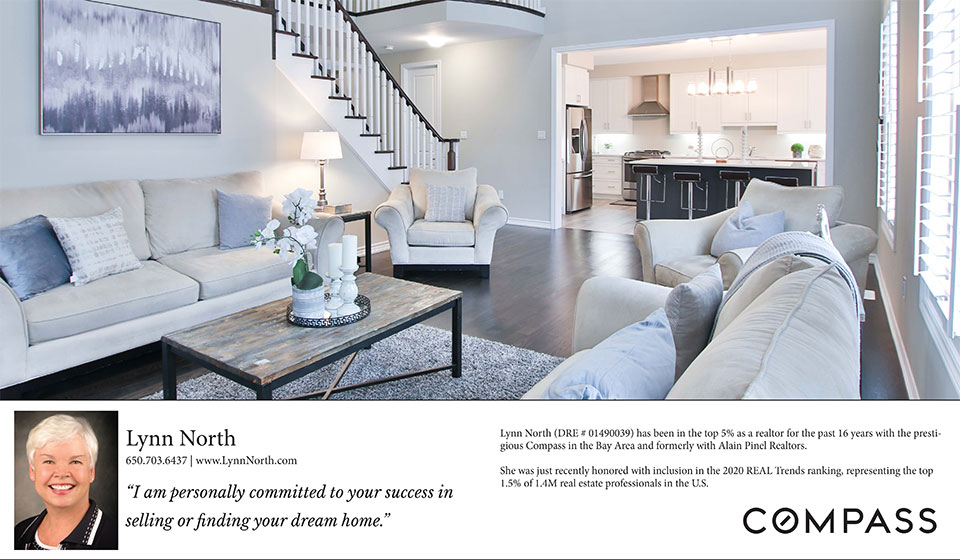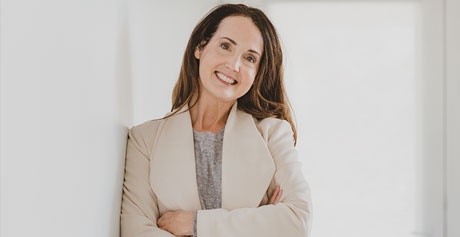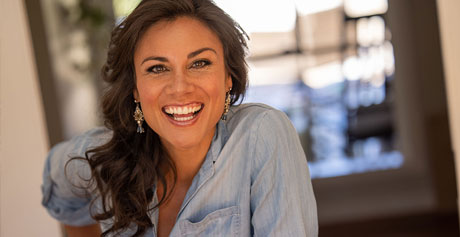Helping Women Get Smarter About Money An Exclusive Interview With Diane Bourdo, CFP®, President, The Humphreys Group

Q: Under your leadership The Humphreys Group recently became a B Corporation. What made you decide to make that change and how does it impact your work?
DB: I initially learned about the B Corp certification probably two decades ago and since then aspired to run The Humphreys Group to serve the interests of all stakeholders. I also wanted to recognize and foster the idea (and my belief) that business success is not measured solely by the bottom line. The world of wealth management is steeped in numbers and metrics of course, and I wanted to explore other ways to measure value and success in a for-profit environment. Lastly, I wanted to join a community with like-minded endeavors. I want to add our voice to the growing belief that making money and doing good can happen at the same time.
Q: You focus on empowering women to take control of their finances. Can you explain why this is important to you and how you achieve it?
DB: Even as a girl, I considered myself a feminist. Like all women, I suspect, I have a deep sense of gender inequality based on my lived experience.
During my career, I have seen it over and over: When a woman gains agency over her finances, she also gains freedom, confidence, and independence. It often comes as a surprise to her, after being told by society for so long that women aren’t “good at money.”
The Humphreys Group has a step-by-step approach to financial planning, and we work with women collaboratively to demystify the world of money and investing. We provide basic education and tools for introspection and help guide this through our book ‘Rewriting the Rules: Telling Truths About Women and Money.” You can download the book for free here. We have seen that when women’s money and values are aligned, they are more engaged and confident, and they experience better financial outcomes.
Q: How do you achieve a work-life balance?
DB: I’ve always had a strong sense of boundaries between my work and home lives. While work is never far from my consciousness, I don’t consider myself a workaholic. Even now, during the pandemic, when I leave my home office for the day, I shift my mindset as well. It helps that I am an avid reader and I also love to get out in nature and exercise.
Q: What is the favorite part of your job?
DB: The most gratifying moments are when we meet with a client and watch her begin to scale the learning curve, and start to realize that she is, in fact, good at money and can make great decisions for herself.
Q: As a female leader in an all-women business, how does that set you apart in a traditionally male-dominated field?
DB: Bottom line, women are better listeners. Expressing empathy and vulnerability comes more easily and naturally to us, so we bring both expertise and empathy to our client work in equal measure. We are not afraid of true connection, of asking difficult questions, of holding that space, of tolerating some discomfort. As a result, we can get at the “why” for our clients. Of course, technical knowledge and expertise plays a significant role in our work. But that’s the minimum. By having a deeper understanding of our clients, we can help them better navigate the emotional roadblocks, biases, and obstacles that may get in their way
Q: Were there moments in your career that were pivotal to getting where you are today?
DB: At the age of 23, I moved from my Midwestern roots to San Francisco. I knew two people and had less than $1,000 in my wallet. No job, no housing. I didn’t realize at the time how courageous that was.
Having been an ardent liberal arts undergrad student, once my interest in investing was sparked, I was surprised and delighted to find out that business school (and getting my CFP designation) was a lot of fun.
I remember the moment I first met the woman who would become my mentor. I felt it in my body, I trusted my gut and followed my instincts.
After resisting for a long time, I dissolved a business partnership — and it was not easy. It took me a while to get rid of a feeling of failure, but the experience was one of the best things that could have happened for me.

Q: What do you think is the most significant barrier to female leadership?
DB: Our ideas about and definitions of leadership are centered around men, their perspectives, their preferences, their strengths, and their historical place of power. This has allowed them to define success on a cultural level so that anyone who has a different definition may have a tough time — or will be seen as an outlier, an outsider, other.
For example, there has been a lot of ink devoted to women and their crisis of confidence. If we reframe that into seeing that women do their homework and take risks in a more measured and informed way, the narrative becomes more nuanced. Further, we generally don’t question the appropriateness of men’s confidence, even when its unjustified. We have seen that overconfidence has contributed to poor decisions, the results of which have hurt many.
Cultural norms often discount the qualities that, as women, we are conditioned to develop from a very early age. Girls are constantly bombarded with cultural messages that they be empathetic, understanding, sacrificial, nice. While many of these qualities are required for true leadership (empathy, vulnerability, servant mindset), they are often discounted in business settings. As another example, cultural norms also punish women who advocate for themselves.
The challenge of balancing the demands of a career and that of motherhood cannot be overstated. The pandemic has laid that bare and has worsened the situation for many women. When I listen to my niece who is in med school and has a 6-month-old child, she is being forced to make the same trade-off calculations that women of my generation (and earlier) have faced. How is it that in 2021 she must (still) choose between pumping breast milk at work or going on rounds?
Q: Can you share with us, one woman who inspires you and why?
DB: Brené Brown is a social worker, social researcher, and author. She is strong, articulate, creative, and funny. She has conducted decades of research on various aspects of leadership and combines this expertise with equally deep research on more qualitative issues such as empathy, shame, and vulnerability. She combines aspiration with practicality. She is a lively and creative thinker. I’ve listened to many interviews in which she talks with an author of a recently published book. She lays out her “thesis” of the book and uniformly, the authors (including Barack Obama) are amazed to hear her insights into their work — and they tell her she’s on the right track!
Q: People often wonder about the differences between how men and women lead. What are your thoughts on that?
DB: Books have been written on this subject! There are many aspects, but I’ll focus on one that I’ve become acquainted with recently. With the pandemic, we have all been operating under higher and more consistent levels of stress. We have been forced to consider and develop our own strategies for resiliency.
The standard “fight or flight” stress response is a paradigm based on 1932 research. (That’s almost 90 years old!) The narrative was set. The problem is that only 17% of research participants were women. New research was done in 2000, by psychologist Shelley Taylor at UCLA. She and her team uncovered a new stress reaction that was especially prevalent in women. The research shows that women have a natural tendency to “tend and befriend.” When tending, we nurture and protect offspring. When befriending, we seek and provide social support and attention. The research found that this response is an outgrowth of cultural norms and how we are raised, from days of survival. Moreover, in addition to the cultural influence, there are different chemical reactions in male vs. female bodies in times of stress.
What does this have to do with leadership? Leadership is tested in times of stress, in times of crisis. By expanding the stress response definition beyond simply “fight or flight,” we gain greater insight, we have more tools at our disposal, and we cultivate a greater appreciation for the strengths and perspectives that women bring to the leadership table.
Q: What advice do you have for women aiming for leadership positions?
DB: Work with a business coach — someone you can rant to, someone you can use as a sounding board, someone who will tell you the truth.
Pay attention to how often you apologize unnecessarily or use discounting language. If you can, catch yourself. If that’s hard, ask a friend to point it out when you do it.
Define success on your own terms.
Five Things About Diane Bourdo
1. Which celebrity would you like to meet at Starbucks for a cup of coffee?
Michelle Obama of course! I am simply in awe of her humanity.
2. If you could give everyone just one piece of advice, what would it be?
Vulnerability is a sign of strength, not weakness.
3. Favorite City?
Amsterdam
4. Who is your favorite author?
Ann Patchett
5. What is your proudest accomplishment?
Personal: My personal relationships, especially with my husband and daughter.
Business: Getting through 2020 as a business owner, keeping all staff and clients “on the boat.”

